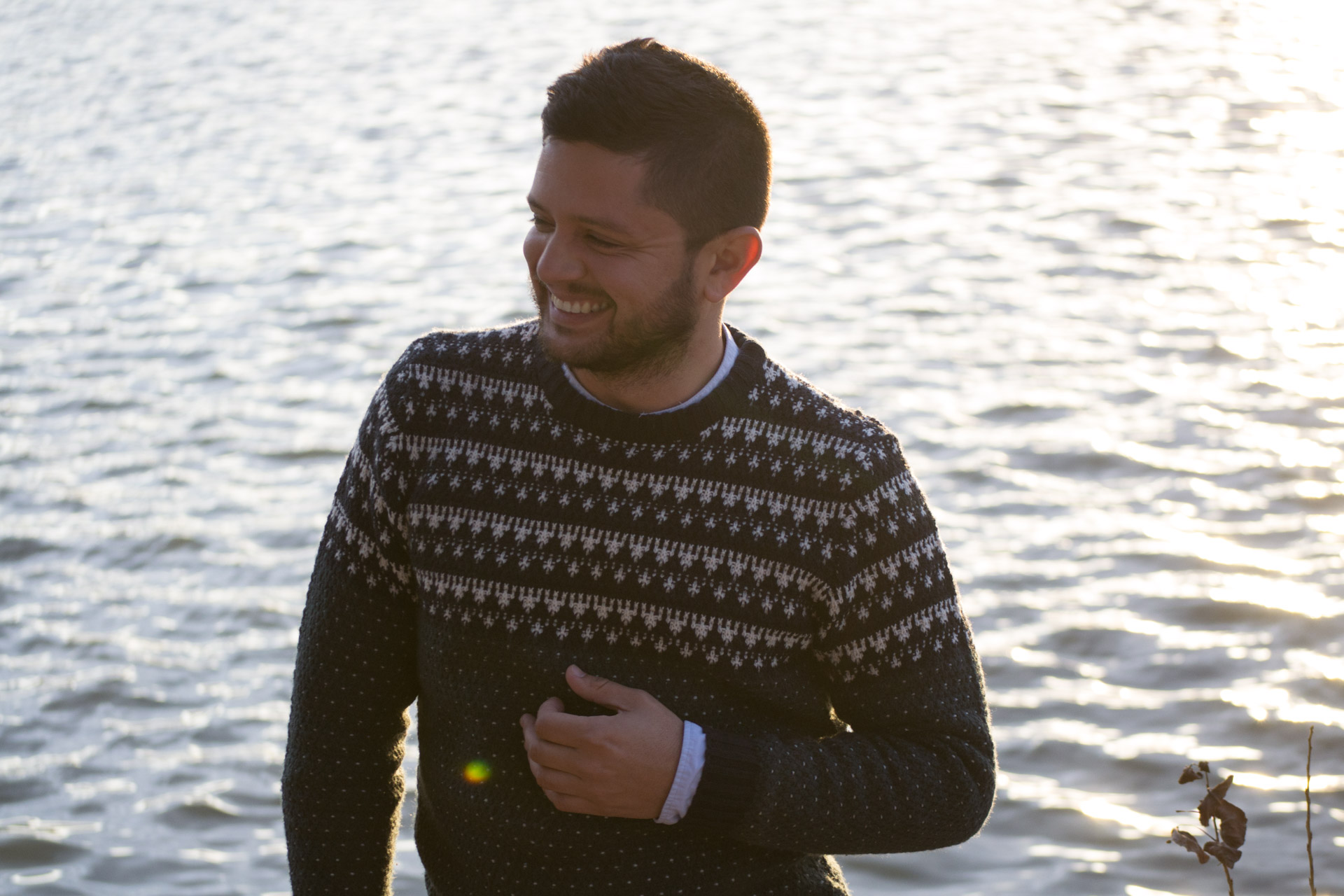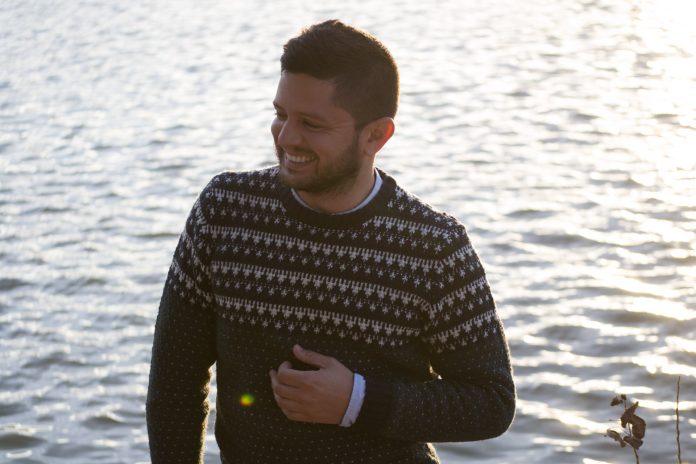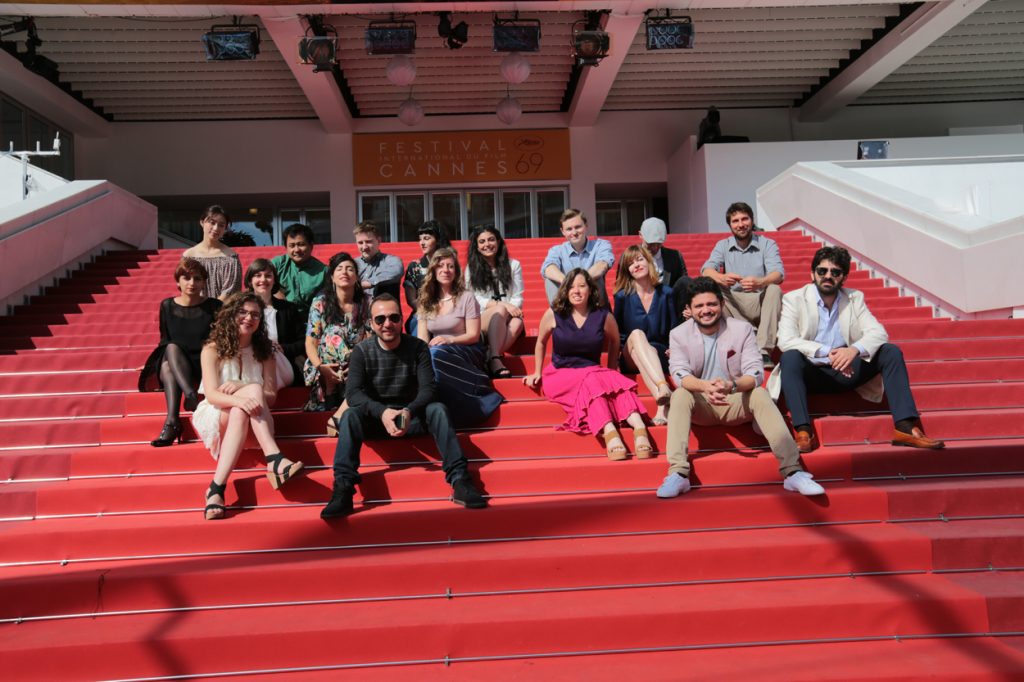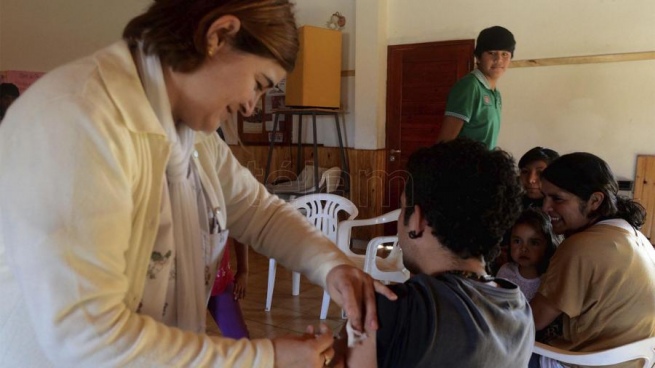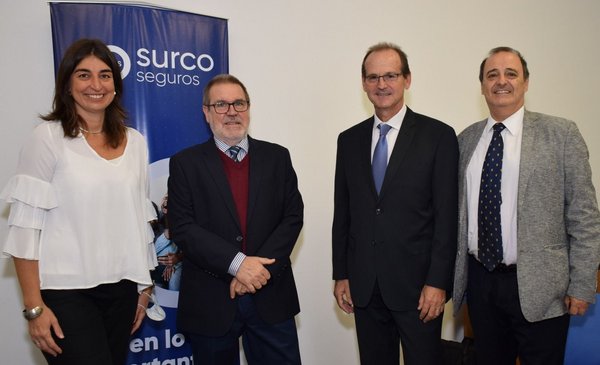By Andreina Gomez
When Michael Labarca received the news that his short The blame he had probably won an award at Cannes and was already in Buenos Aires. She arrived in the city of Buenos Aires with the goal of continuing to develop her film career. He graduated from the Universidad de Los Andes, where he made friends with his current producer, Patricia Ramírez, with whom he carries out his personal project. Boys bathing in the lake. This is the title of the film that is in the pre-production stage and seeking financing to shoot soon in Maracaibo.
A 37-year-old Venezuelan, he has gone through many stages since his arrival in Argentina. Like many others, he has been touched by the remoteness of his affections, even though he has lived alone for nearly two decades. He is the second in a litter of three brothers and the eldest of two others remarried to his father. He is Zulian by birth and Andean by professional training.
The marabina musicality sneaks into their conversation, fighting strongly with the Andean. But, his expressions already reveal him as a member of the Buenos Aires culture, since he works in the work environment as a continuationist, having the fortune of being called to projects on the recommendation of a team that recognizes his dedication and professionalism. .
He began as an actor in the theater of Fine Arts of Maracaibo. For several years he appeared on the stage of Lía Bermúdez with works by Javier Rondón, Marcos Meza, Richard Oliveros and other very important directors for Zulia. His eyes shine beautifully with the memory of that cultural effervescence. Through the tables he was linked to audiovisual production, since he won several castings to make video clips and advertising.
“Those experiences allowed me to see how everything moved behind the scenes and I found it fascinating. Then my passion was fueled in movie theaters. For me, it is still a beautiful ritual to watch a movie on the big screen, despite the convenience that streaming platforms provide. Little by little I realized that there were people in my city who worked in film and that it was possible, so I said to myself, I want to do this».
From the beloved land of the sun to the city of knights
First, it passed through the classrooms of the University of Zulia. He studied sociology until the sixth semester, but then he made the decision to go to Mérida to study cinema. He was fortunate to be selected to give a face to the image of an important supermarket, with whose resources he was able to live a year without worries while waiting for the admission tests at the Universidad de Los Andes. After applying, he was selected for the second group, whose semester began in October.
«I lived a period full of adrenaline. I knew what I was betting on, I had left a career and started a life away from my family. My parents were afraid things might not work out, but I jumped in with that youthful 20-year-old energy. I felt it was time to eat the world. Besides, I loved Mérida, like all Zulians. Escape the heat and reach a city surrounded by mountains that seem to be chasing you. Wherever you look they go », she describes with the absolute gaze of someone who imagines behind the cameras.
Michael He defines himself as very infatuated, a condition that apparently worked in his favor, since he assures that it allowed him to quickly create bonds and relate in an affective way with the new city. Likewise, he took advantage of the vacations to return to Lake Maracaibo to seek the warmth of the home where he grew up. Visiting his nephews filled her heart.
«I think that time was a preparation for what finally brought me to Buenos Aires. Likewise, I lived the last five years in Caracas before making the decision to leave Venezuela. My departure from Zulia was gradual, living away from home for so many years was like training that made it much easier for me to adapt to immigrant life.
Argentina was not a random destination
the author of The blame he probably did not choose Argentina at random. She had the opportunity to visit her as part of a company invited to theater festivals in 2005 and 2008. Then in 2011, while doing her internships to obtain credits at ULA, she applied for her CV to several production companies in the southern country. Fortunately, a small company called him and he traveled to work in the capital. So he had already made some contacts that gave him enough confidence to buy a Christmas sale ticket a year in advance. He saw it as a great opportunity to take the ultimate flight in 2016.
“I lived through the 2015 protests in Venezuela and when I saw that things were getting worse, I resumed my thesis, since it was paused because I was working on what I like. But, seeing that things got worse, I returned to Zulia, filmed the short film and left; no longer as a vacation plan but with the intention of staying. My graduation ceremony was on December 14 of that year and on the 16th I took a flight to Maiquetía with an international connection. My parents went to my graduation and there was the farewell.
Now there are three Labarca brothers who live in the Argentine capital. «We can help our relatives in difficulty in something else. Of course I started here like all migrants. I worked in bars, as a bachero (washing dishes) until a friend who worked on a short film recommended me to replace her because she had a trip. Since then, he has not stopped connecting with his field of work.
Fortunately, he has earned the respect and trust of his peers. The role he plays is highly valued in Argentine productions, adding the plus that knowing him as a screenwriter and theater artist brings a lot of professionalism to his performance. Michael feels fulfilled and confesses that he is having a good time. He likes to know the customs of the porteños. He brings the best of his Zulian culture “I have cooked patacones for them, but I forbade myself other preparations that are too greasy and harmful to health”, laughs.
Michael feels grateful to the country that opened its doors to him and to the people who value that particular energy of Venezuelans. “I am united that they are very honest and very clear with what they expect from you. It has cost me a bit to understand that they do not have filters to say things and I feel that it is something that must be learned to improve.
An award that taught him to trust
The blame It was probably a degree project full of cultural symbols. The separation of a couple with children made it possible to reflect various sufferings, not only that linked to personal emotion but also the reflection of a crisis through the blackouts in Venezuela. «Darkness as an aesthetic resource allowed me to give strength to the theme and was taken into account when selecting it and recognizing it in Cannes».
Michael Labarca has many memories of that trip to France, not only because of the economic effort to get to the award, but also because of the words of the president of the jury. The Japanese Naomi Kawase was surprised by an unusual hug from the winner and in return she gave him these words: «You have a lot to learn but I am beginning to see a style in your work». The Venezuelan was sure that his work had a chance, although he knew that the prize had good competitors. So far from becoming great, he became aware that trust is the basis of his future achievements and above all in continuing to work.

